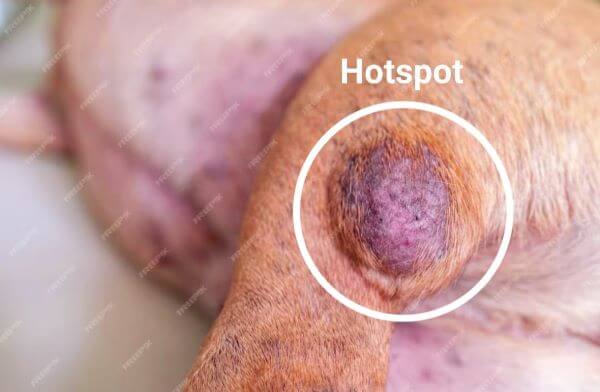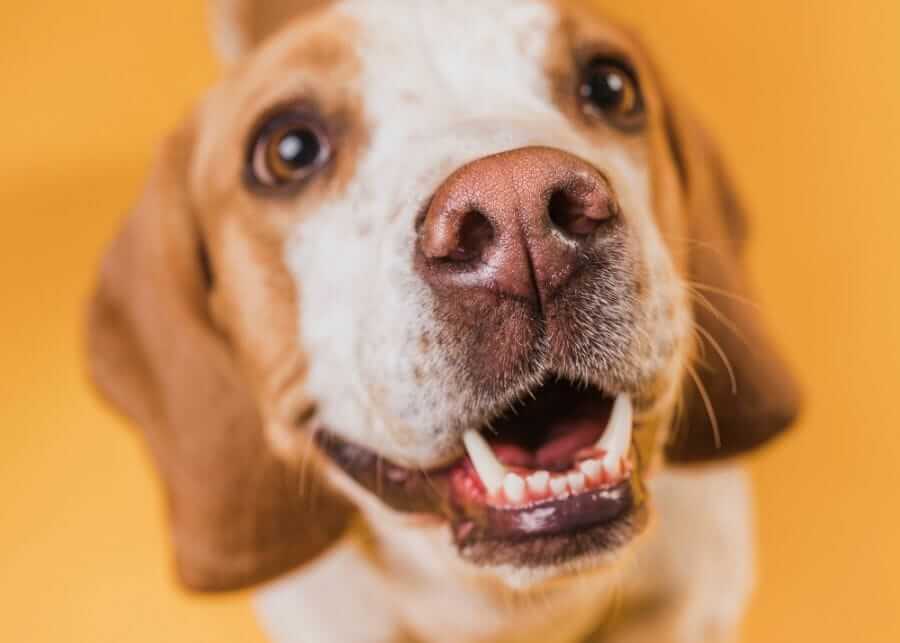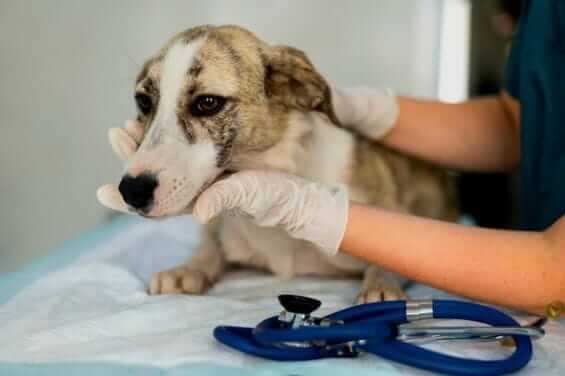Ever seen a dog with a bloated belly and wondered what caused this mysterious distension? As a dog owner, it could be quite worrying to see any abnormal changes in your dog’s body. Well, Bloat is scientifically known as gastric dilatation-volvulus (GDV). It is a potentially fatal disease that commonly affects dogs, particularly deep-chested breeds (e.g. Greyhounds, Irish Setters, Old English Sheepdogs).
GDV condition occurs when the stomach of a dog fills with gas or air, causing expansion of the abdomen. This abnormal expansion can cause twisting of the stomach. Bloat in dogs is a veterinary emergency that requires immediate attention or even surgeries in severe cases. All dog owners must understand its causes, symptoms, treatment, and prevention to save their pets from any possible issue.

What Are The Causes Of Bloat In Dogs?
We might wonder, what causes this mysterious bloating in our furry friends? The exact cause of bloat in dogs is really hard to find, but it happens due to many factors.
One primary factor is the anatomy of deep-chested breeds, such as Greyhounds, Irish Setters, and Old English Sheepdogs). These dogs are prone to this condition because the air traps inside their bodies easily and causes bloating.
Sometimes genetics also contribute to bloating in dogs. If there is a history of bloating in ancestors, then there are more risks of bloating in puppies.
Dietary factors also contribute to bloating. Feeding dogs one large meal per day, eating high-fat dry kibble, and eating quickly are all connected with an increased risk of bloat.
Additionally, vigorous exercise or physical activity immediately after eating can worsen the condition.
Stress and Anxiety can also cause bloat in a dog.
What Dogs Are More Prone To Bloating?
- Narrow-chested dog breeds such as Great Dane Doberman Pinscher, and German Shepherd are more prone to bloating due to their tall, deep, and narrow body.
- Giant Dog Breeds such as Saint Bernard and Irish Wolfhound are more prone to bloat.
- Old Dogs are more prone to bloating because of their reduced metabolism and less activity.
- Although not as deep-chested as some other breeds, Standard Poodles have been shown to be more prone to bloat.
What Are The Symptoms Of Bloat In Dogs?
It is crucial to recognize the symptoms of bloat to protect our dogs from pain and discomfort. Its symptoms appear rapidly and the common symptoms of bloat include:
- Distended abdomenhttps://doglifediaries.com/abdominal-distension-in-dogs/
- Unsuccessful attempts to vomit
- Restlessness
- Pacing
- Excessive salivation
- Difficulty in breathing
- Pale gums
- Expressing pain when the belly is touched
- Denying food
- More Panting (Unraveling the Mystery: Causes of Dogs Panting)

What are The Treatments of Bloat in Dogs?
Bloat is a serious condition, and immediate veterinary attention is crucial for saving the lives of your four-legged furry friends. If you observe that your dog is bloated seek medical assistance immediately. A veterinarian may thoroughly examine your dog and provide the treatment according to the reason for bloat.

The veterinarian will stabilize the dog by providing intravenous fluids to address shock and correct dehydration. The veterinarian may pass a tube through the dog’s esophagus to release gas from the stomach and alleviate pressure.
In cases of severe bloat or when the stomach has twisted (volvulus), emergency surgery is necessary to correct the twisting and prevent further complications. Pain relief and other medications may be administered to manage symptoms and support the dog’s recovery.
How To Take Care Of A Bloated Dog?
After visiting the vet, make sure to follow all the prescriptions. This is necessary for the well-being of your dog.
Keep your dog calm and minimize stress. Stress can intensify the symptoms of bloat. Provide your dog with a lot of fresh water to prevent any dehydration due to medications. Manage their eating routine according to your vet’s prescription.
Ensure your dog’s airway is clear and unobstructed. Remove any collars or tight items around the neck to facilitate breathing.
Be gentle and reassuring to your dog. Talk to them softly and offer comfort to reduce anxiety.
Bloat is a serious medical condition that requires professional intervention. Do not attempt to treat it at home; instead, focus on getting your dog to the vet as quickly as possible.
How to Prevent Bloat in Dogs?
While some factors contributing to bloat are beyond an owner’s control, some measures can be taken to reduce the risk:
Instead of one large meal, feed your dog multiple small meals throughout the day. Use slow-feed bowls or puzzle feeders. These feeders help reduce the speed of eating food. Always make sure to choose high-quality food with low-fat content. Avoid all foods that have high fat content. If your dog has a history of bloat then use foods enriched with proteins.

Avoid intense exercise after meals. Restrict physical activity for at least an hour after eating to prevent the onset of bloat. Monitor the water intake of your dog. Limit water consumption immediately before and after meals, as excessive drinking can contribute to bloat. Take your dog to regular veterinary check-ups. Regular visits to the veterinarian can help detect and address potential issues before they expand.
FAQs about Bloat In Dogs
Bloat in dogs, also known as gastric dilatation-volvulus (GDV), is a medical issue that does not resolves on its own. It is a serious medical condition that requires professional intervention. Immediate veterinarian attention is required to address the potentially fatal disease and avoid further problems.
Bloating in dogs can be extremely painful and even deadly if left untreated. Because it can cause severe problems such as tissue damage, organ failure, and shock. Recognizing the symptoms of bloat and seek immediate veterinary care are crucial for a healthy outcome.
It is not suggested to try to treat bloat in your dog at home. To address the dangerous nature of gastric dilatation-volvulus, an immediate professional veterinarian therapy is required, that typically include stomach decompression and stabilization.





